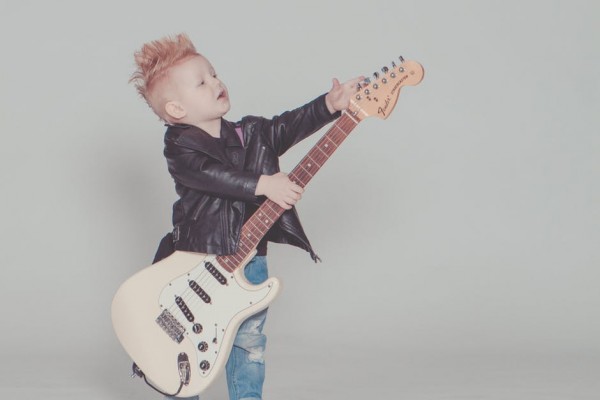The Mozart Effect – the theory that there is a correlation between classical music and intellectual ability – has promoted the belief that music can make children smarter. Whilst the theory is certainly open for debate, there is no denying that the learning and playing of a musical instrument can have some positive effects on child development, especially if they begin learning early-on.

Although there is no conclusive evidence to support the above, studies have shown that musical instruments can help children develop certain key skills and abilities in addition to the appreciation for real music, something which many young people seem to lack.
There is no right or wrong instrument for children to learn; piano lessons, guitar lessons and singing lessons all teach certain skills and abilities, which are valuable for later life.
#1: Academic Skills
Music and mathematics have a unique connection. When your child learns about beats, rhythm, scales and other musical things, they are also learning how to recognize patterns and work with numbers. Reading music helps develop the child’s brain to better understand other areas of mathematics.
Also, believe it or not, music also introduces children to a basic level of physics, i.e. playing the guitar and plucking strings teaches children about vibrations and how these can be manipulated to produce sound.
#2: It Promotes Discipline and Patience
Learning an instrument takes a lot of time, especially to master it. Musical instruments, therefore, teach children to be patient and disciplined in their endeavors. A good example of this is the violin where, before a child even plays a note on it, they must learn how to properly hold the violin, how to stand, and how to hold the bow.
Instruments teach children how to persevere through a long-term learning process and years of practice before they can reach certain milestones and goals, such as performing as part of a band or larger group.
#3: It Teaches Culture
Music is perhaps one of the most cultured things we have in this world; nothing varies quite as much around the world as music. By learning a variety of instruments and learning about the wider reach of music, children can easily discover how music plays a vital role in different cultures to their own.
Bongos, for example, gives children an introduction to African music, whereas violins have their roots in European music, i.e. the violin and piano are more linked to classical and jazz music, whereas the guitar is linked more to folk, pop, and country music. Let your children explore different types of music, so they can find one that “speaks” to them on an emotional level.
All in all, music gives children a wider understanding and appreciation of the world around them.
All parents should encourage their children to pick up some form of musical instrument. Although instruments can be expensive, the lessons they teach children and the wider understanding of the world they provide are invaluable, leading to a more disciplined and well-rounded person in the long-term.
This post comes from the TODAY Parenting Team community, where all members are welcome to post and discuss parenting solutions. Learn more and join us! Because we're all in this together.
